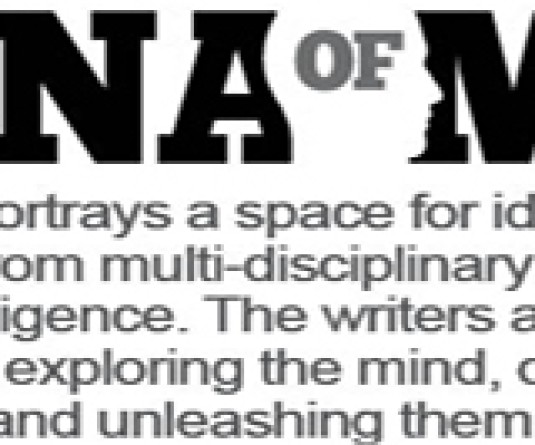
C Vinoth Kumar
Assistant Professor, Department of Chemistry, St. Joseph’s College, Jakhma
Mathematics as an expression of human mind reflects the active will, the contemplative and the desire for aesthetic perfection. Its basic elements are logic and intuition, analysis and construction, generally and individually. Though the different generation may emphasize different aspects, it is only the interplay of these antithetic forces and the struggle for their synthesis that constitute the life, usefulness and supreme value of mathematical science.
Without doubts, all mathematical development has its psychological roots in more or less practical requirements. Recorded mathematics begins in the orient, where about 2000 B.C., the Babylonians collected a great wealth of material that we could classify today under elementary algebra. Yet as a science in the modern sense mathematics only emerge later. The ever-increasing contact between the Orient and the Greeks, beginning at the time of Persian Empire and reaching the climax in the period following Alexander’s expeditions, made the Greek familiar with the achievement of the Babylonian mathematics and astronomy.
Fortunately, creative minds forget dogmatic philosophical beliefs whenever adherence to them would impede constructive element. Forscholars and layman alike it is not philosophy but it is an active experience in mathematics itself that alone can answer the question, what isMathematics?
Mathematical Processes: Student must be given the opportunity to play an active role in the mathematics classroom. They should be given the chance to:
• Apply and justify the use of a variety of problem solving strategies.
• Use organized appropriate strategies to solve multi step problems.
• Interpret results in the context of the problem being solved.
• Use mathematical strategies to solve problems that relate to other curriculum areas and the real world.
• Link concepts to procedures and to symbolic notation.
• Recognize relationships among different topics within mathematics.
• Use reasoning skills to determine and explain the reasonableness of a solution with respect to the problem situation.
• Recognize basic valid and invalidarguments and use examples and counter examples, models relationship and logic to support or refute.
• Represent problem situation in a variety of forms (physical mode, situations in words or symbols), and recognize some ways of representing a problem may be more helpful than others.
• Read, interpret, discuss and write about mathematical ideas and concepts using both every day and mathematical language.
• Use mathematical language to explain and justify mathematical ideas, strategies and solutions. It is often helpful to use objects or act out a problem. This allows you to use visual images of the data in the problem and the solution process. Dramatizing or moving around objects can help you understand and solve the problem.
Scope for Higher studies after B.Sc. Mathematics:
There are various options available for B.Sc. Mathematics graduate to pure their higher studies. Details of best higher studies options for B.Sc. Mathematics graduates are given below.
M.Sc. is one of the best higher studies option available for the B.Sc. Mathematics graduates followed by M.Phil. or Ph.D. Thus theycan find a promising career in Research or Teaching field. Another option is to do Master’s Degree in Economics or Econometrics. This will help them to pursue one of the best career options in India EconomicsServices (IES).






